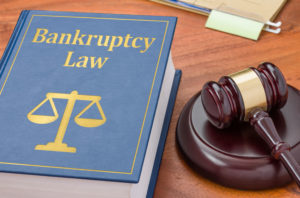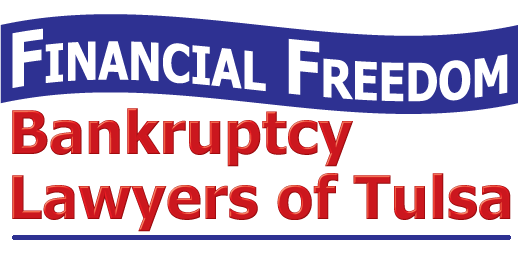Oklahoma Bankruptcy HelpI Have a Good Job, But Too Much Debt: Can I File Bankruptcy?
 When people think about whether to file bankruptcy in Tulsa, Oklahoma, they usually consider Chapter 7 liquidation.
When people think about whether to file bankruptcy in Tulsa, Oklahoma, they usually consider Chapter 7 liquidation.
In a Chapter 7 filing, the bankruptcy trustee determines if the filer has any non-exempt assets that can be distributed among the creditors. If so, the assets are distributed or sold and the remaining qualifying debt is discharged.
Chapter 13 is different. Chapter 13 of the U.S. Bankruptcy Code provides a debt adjustment procedure. This is sometimes called a wage earner’s plan or reorganization.
You May Want to File Bankruptcy Under Chapter 13
Any individual or couple behind in debt payments may qualify to file bankruptcy under Chapter 13. In a Chapter 13 filing, a bankruptcy trustee reviews your income, debt, assets, and disposable income to help devise a plan to pay off your debt in three to five years. At the end of this plan, any remaining debt will be discharged.
There are certain advantages to filing for Chapter 13 relief. Small business owners often qualify for Chapter 13. Self-employed individuals or those operating as unincorporated businesses can be eligible for Chapter 13, as long as unsecured debts are less than $394,725 and secured debts are less than $1,184,200 (as of 2018). These amounts are adjusted regularly in accordance with the consumer price index. 11 U.S.C. § 109(e)
Partnerships and corporations must file for reorganization under the more complex Chapter 11.
In addition, if you have debt secured by assets such as a home or car, Chapter 13 makes it easy to keep these assets. You can protect your home from foreclosure, reduce your mortgage payments, cure mortgage arrearages over time, consolidate all your debts into one payment, prevent the gathering and sale of your assets, stop harassing debt collection efforts, and protect any co-signers on your loans.
Ineligible Debts
Not all debt is dischargeable under Chapter 13.
Many tax obligations are not dischargeable. Usually, federally funded student loans are not dischargeable. There are exceptions in both these areas.
Domestic support such as child support and court-ordered restitution are usually not dischargeable either.
You should refer your questions to a qualified Tulsa bankruptcy attorney.
Extensive Paperwork Required
Whether you file bankruptcy under Chapter 13 or Chapter 7, there are many forms that will need to be filled out completely and accurately. Mistakes made in the forms can cause a bankruptcy case to be dismissed.
A debtor must compile all of the following:
- A list of all creditors, amounts owed, and the nature of the debt;
- The source, amount, and frequency of the debtor’s income;
- A list of all of the debtor’s property; and
- A detailed list of the debtor’s monthly living expenses. This should be complete but not “padded.”
The Chapter 13 trustee both evaluates the case and serves as a disbursing agent, collecting payments from the debtor and making distributions to creditors. A repayment plan is devised and must be followed by the debtor for the prescribed time. 11 U.S.C. § 1302(b)
Keeping property secured by a particular debt can be somewhat complex for the individual filer. If you are filing for Chapter 13, you need the benefit of an experienced attorney to ensure you keep the property that is important to you.
In essence, the plan must provide that the holder of the secured claim receive at least the value of the property. If the obligation underlying the secured claim was used to buy the property (like a car loan), often the plan must provide for full repayment of the debt — not just the value of the property.
Payments to secured creditors (e.g., mortgage lenders) may be extend beyond the plan end date. However, all arrearages must be paid during the plan.
Initial Strategy Session: Tulsa Chapter 13 Bankruptcy Attorney
Financial Freedom Bankruptcy Lawyers has extensive experience with Oklahoma bankruptcy law and Oklahoma bankruptcy exemptions. We are here for you.
For a initial, no-obligation consultation with a bankruptcy lawyer in Tulsa, call 918-786-9600 today.
You can also contact us via email using the link at the top of this page.




